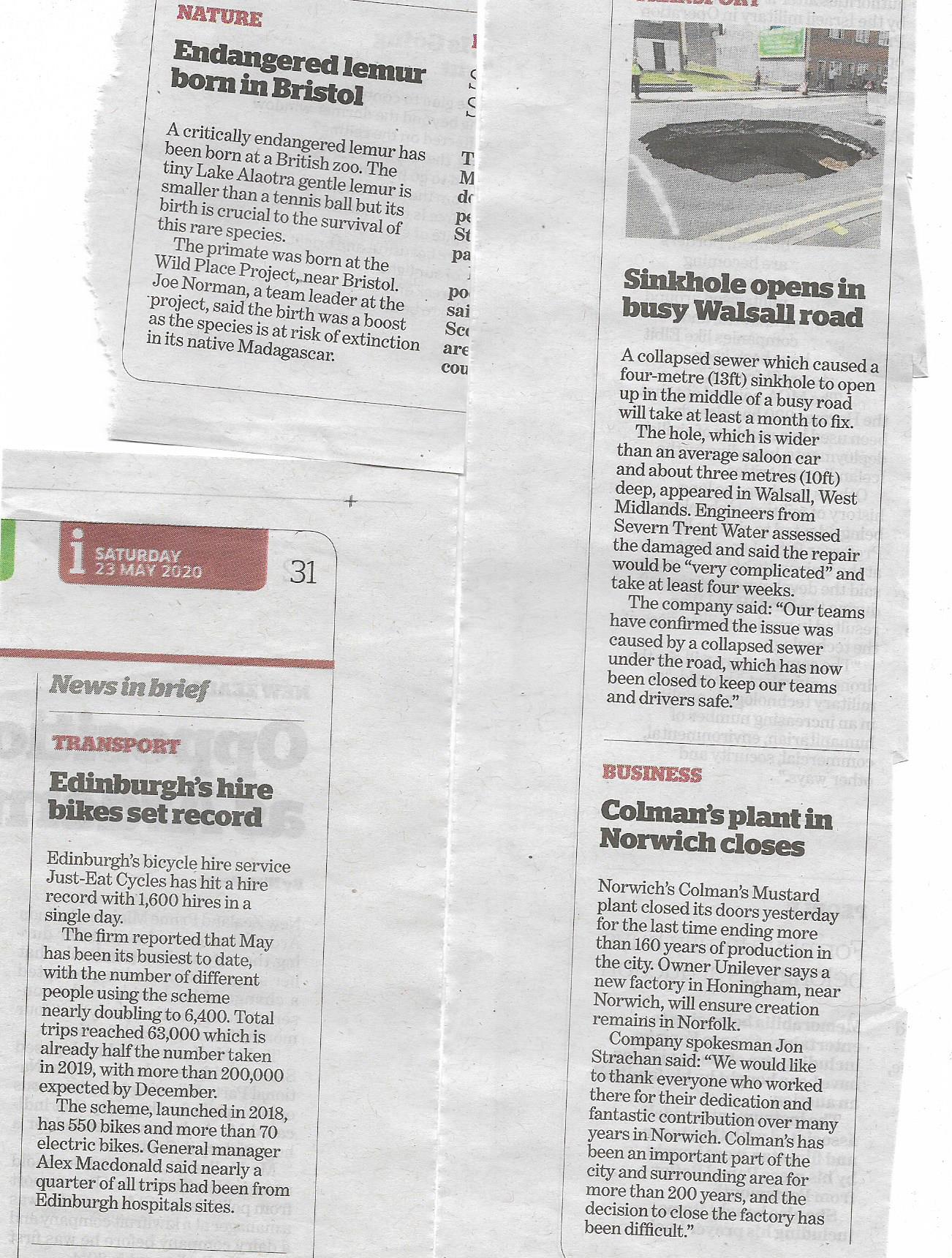 i newspaper, May 23, 2020
i newspaper, May 23, 2020
It’s local paper day in the i. I suppose all subbing rules have gone out of the window now that everyone knows best, but there is usually a good reason for them. In this case, you don’t put the name of the town in the heading because those who are not interested in Norwich, Edinburgh or Chipping Sodbury (which is most readers) will consciously or subconsciously think: ‘That is of no relevance to me’ and move on, saying: ‘This is a really boring paper, nothing in it I want to read.’ If the subs at the i have discarded this rule, I wish them luck.
Let’s look at the lemur story in more detail.
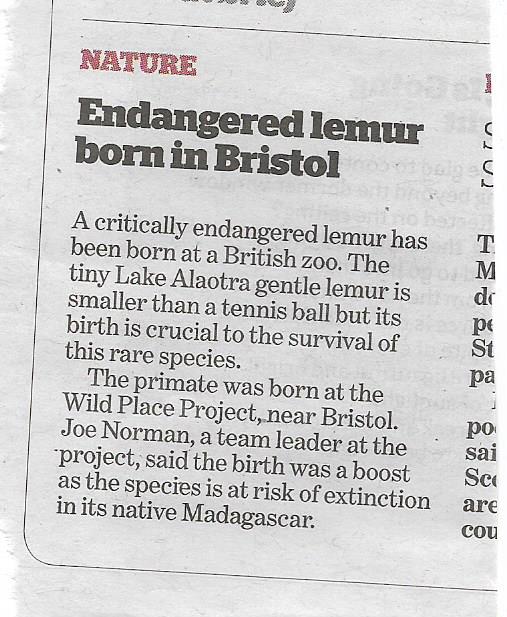
(72 words). It is not the young lemur which is endangered (though it may be if they don’t look after it properly) but the species. I would not say something the size of a tennis ball was tiny (you can leave that to the reader to judge) and why ‘but its birth is crucial’? ‘But’ means something surprising, so are we suggesting that if it were the size of a football its birth would be less crucial? We have said that it is critically endangered, so it is obviously ‘rare’. Frankly, what a team leader has to say is not as interesting as getting in a few more facts.
This is how I would do it, having spent five minutes or less on Google:
Zoo lifeline for
threatened lemurs
A critically endangered species has been given a boost with the birth of a Lake Alaotra gentle lemur at the Wild Place Project in Gloucestershire, part of Bristol Zoo.
The primate is close to extinction in its native Madagascar because of hunting, destruction of the reed beds on which it feeds and illegal capture for the pet trade – Gerald Durrell described it as a honey-coloured teddy bear – with only 2,500 remaining. (72 words)
By the way, if you want to see how much work the i put into this story, see this press release.
https://visitbristol.co.uk/destinationbristol/information/news/2020/5/22/critically-endangered-lemur-born-at-wild-place-project-a5808/
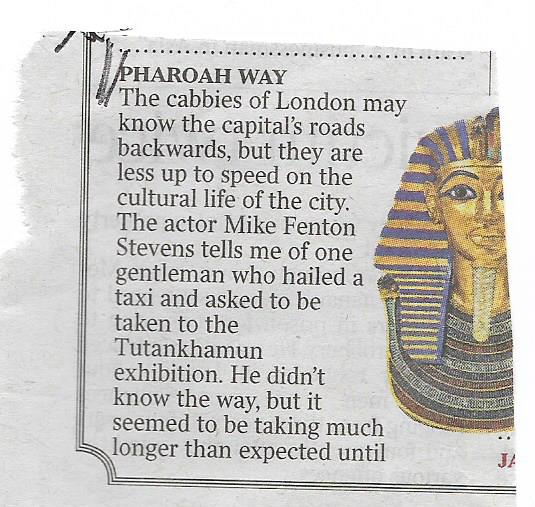
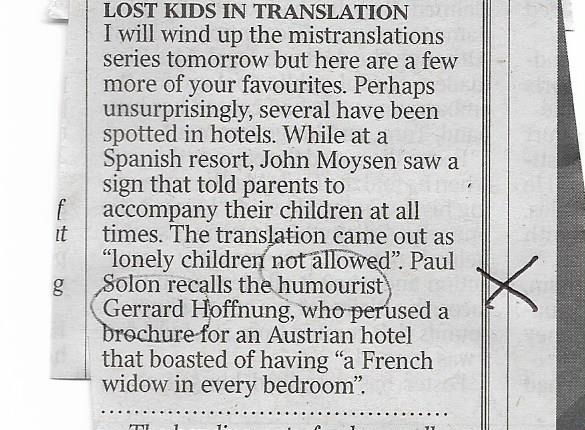
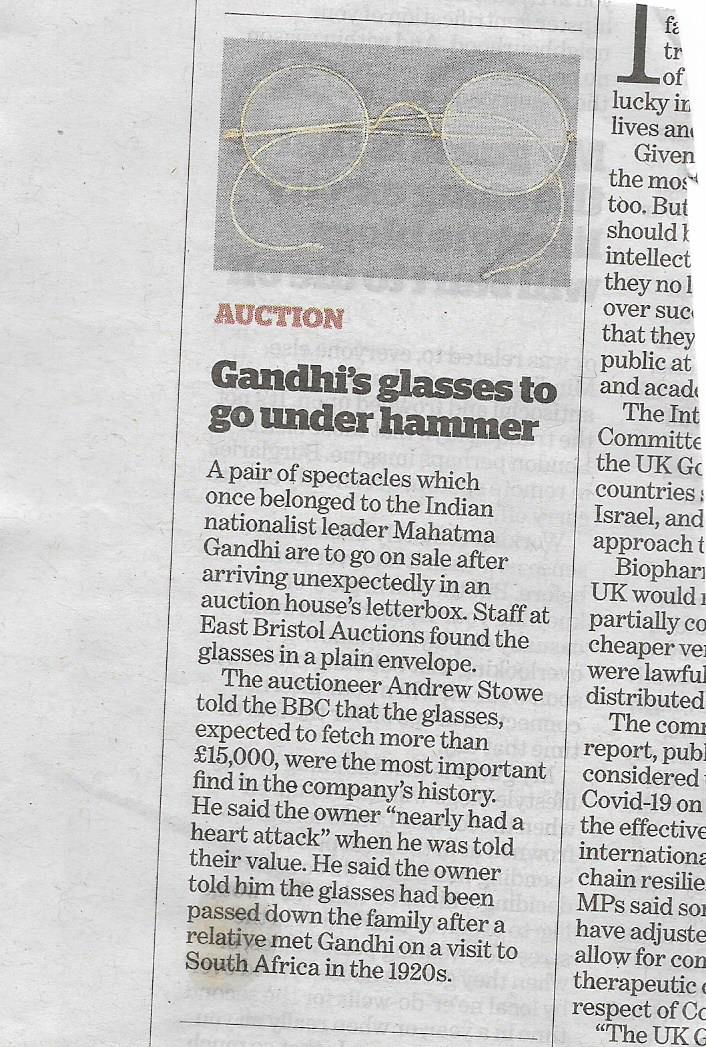
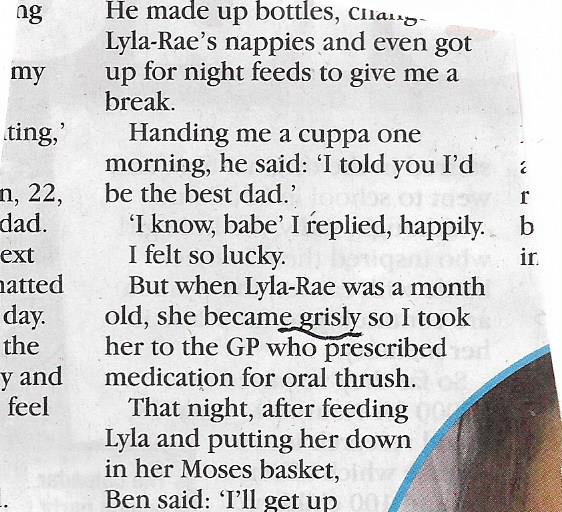
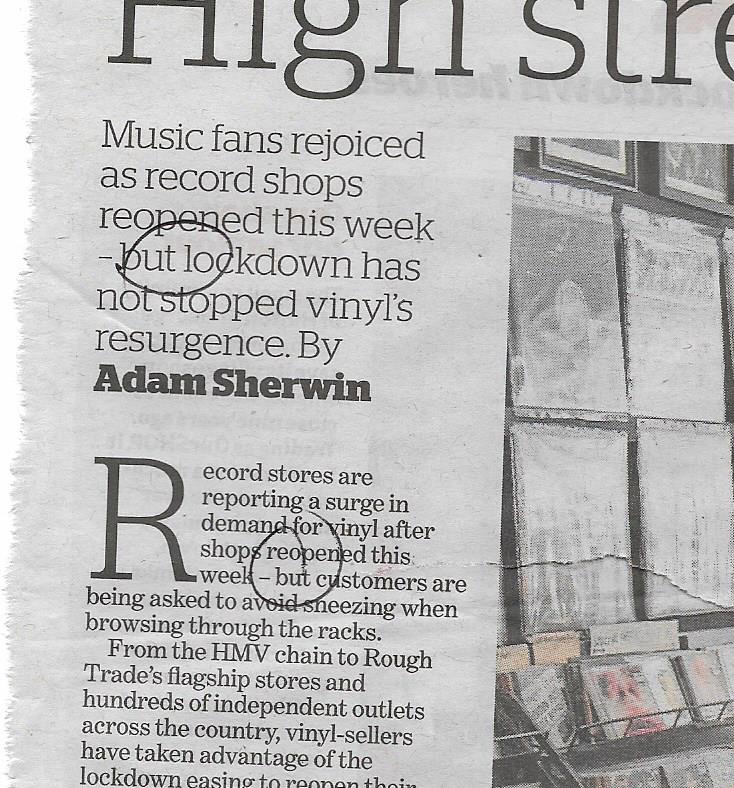
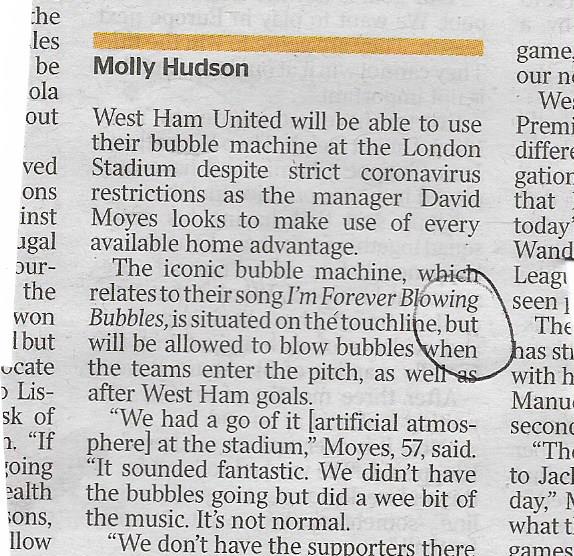
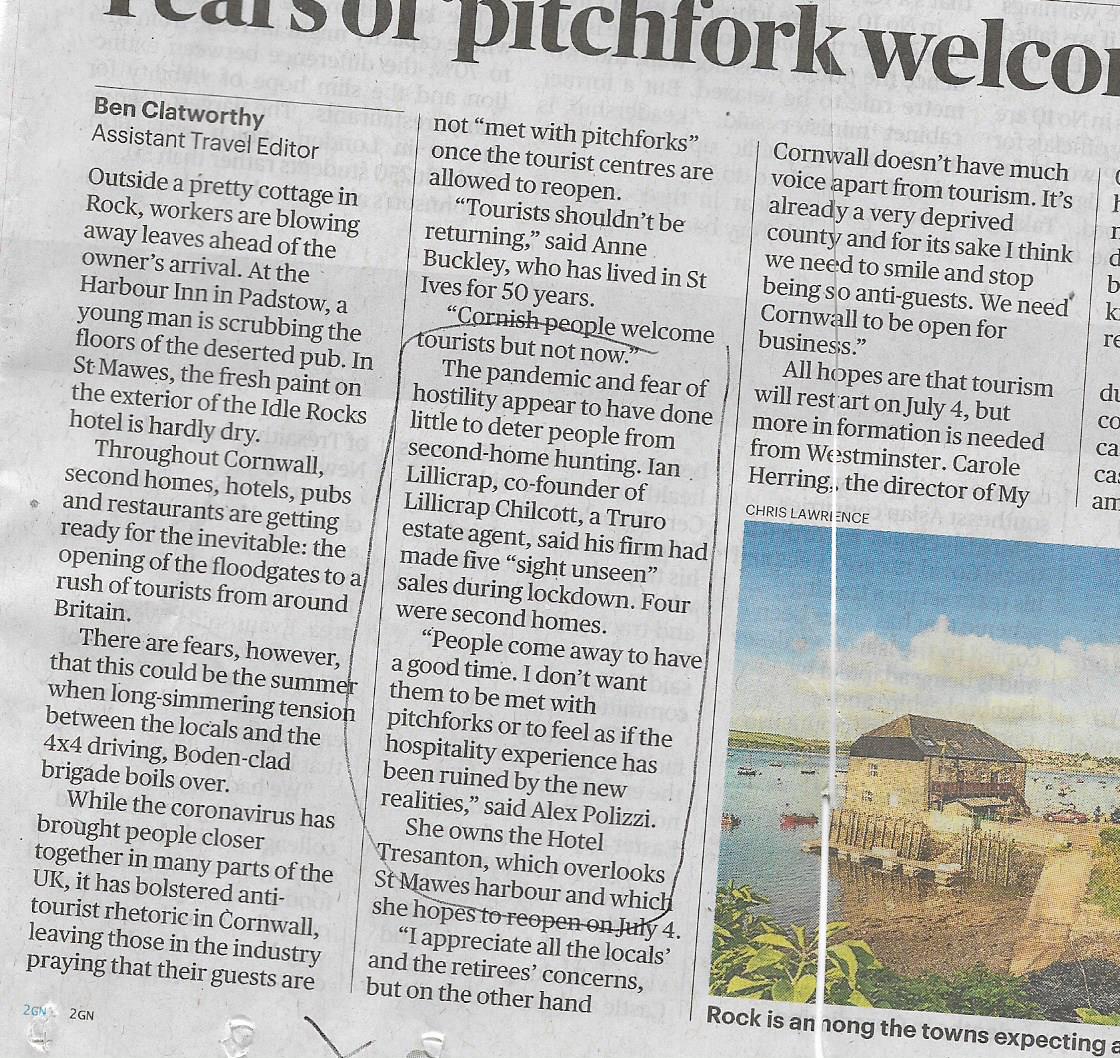 Sunday Times, June 14, 2020
Sunday Times, June 14, 2020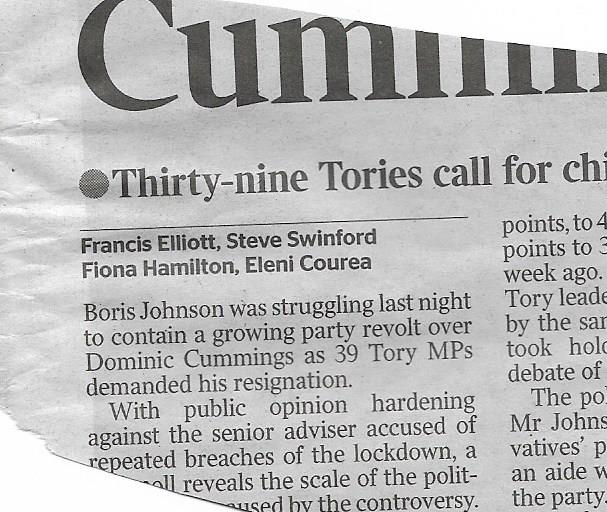 Times, May 27, 2020
Times, May 27, 2020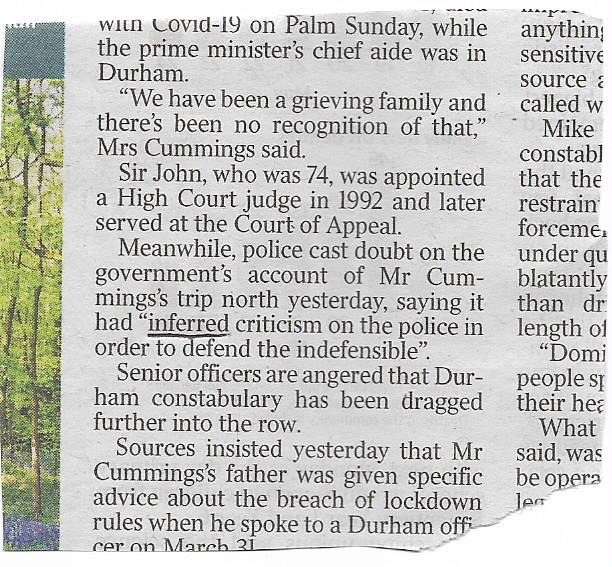 Times, May 25, 2020
Times, May 25, 2020 i newspaper, May 23, 2020
i newspaper, May 23, 2020
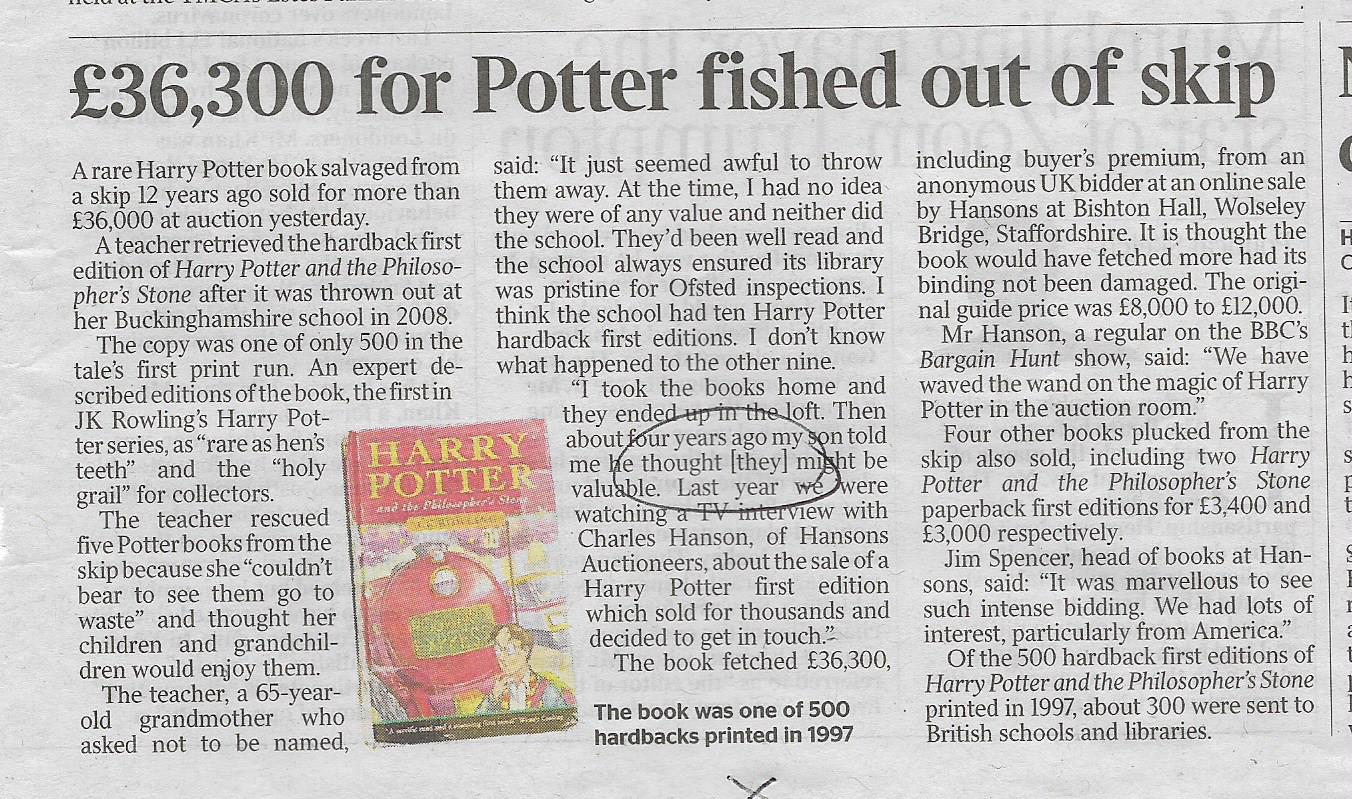 Times, May 22, 2020
Times, May 22, 2020